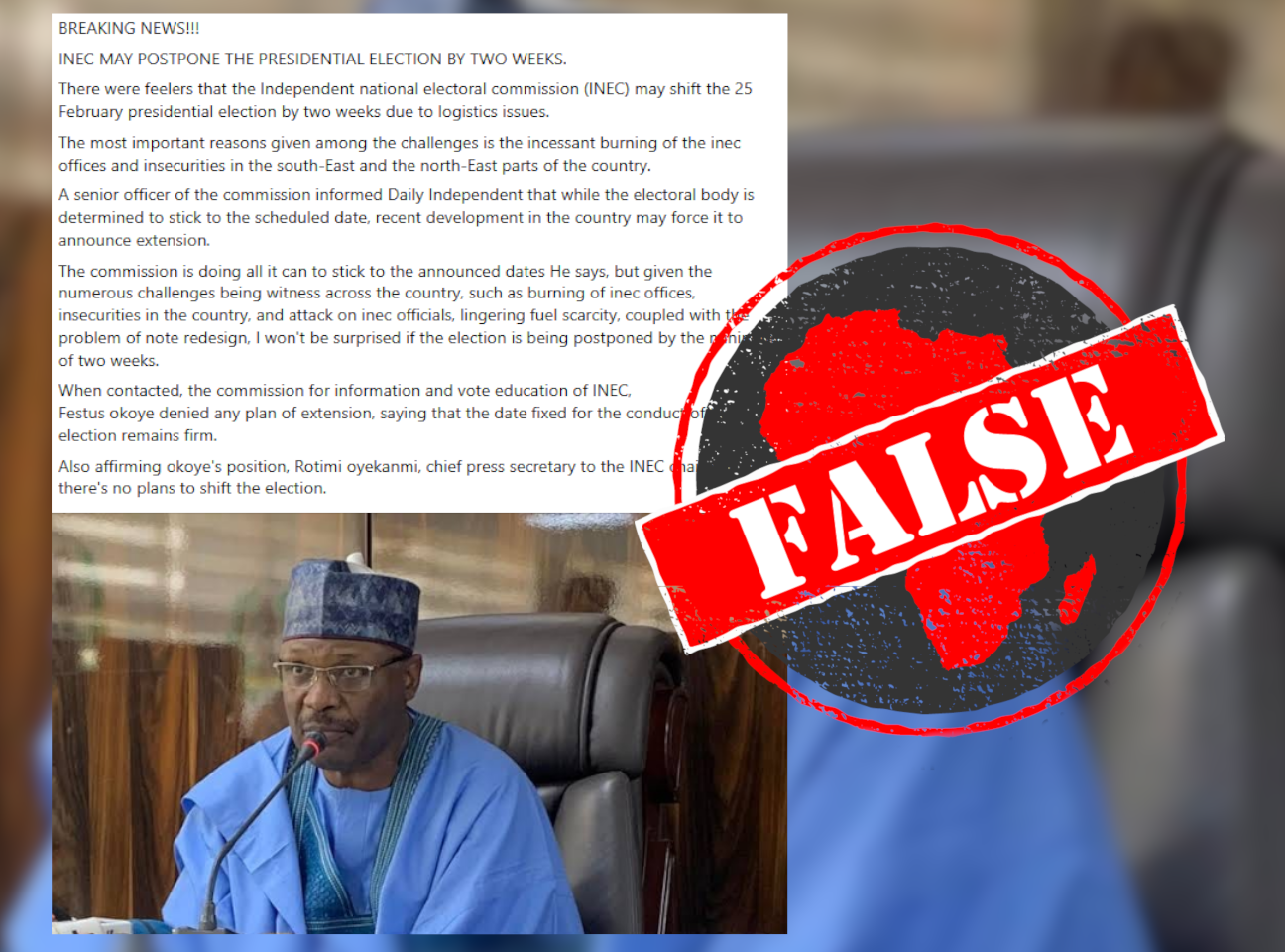IN SHORT: Nigeria’s presidential election is still set for 25 February 2023. Social media claims that it could be delayed by two weeks may prevent citizens from voting on the day. Ignore the claims, and vote.
Nigerians are set to choose a new president on 25 February 2023.
But a message has surfaced on Facebook with the claim that Inec, Nigeria’s Independent National Electoral Commission, may delay the vote.
The message begins: “BREAKING NEWS!!! INEC MAY POSTPONE THE PRESIDENTIAL ELECTION BY TWO WEEKS.”
It adds: “There were feelers that the Independent national electoral commission (INEC) may shift the 25 February presidential election by two weeks due to logistics issues.”
It also gives the burning of Inec offices and insecurity in the country’s southeast and northeast as reasons for postponing the vote.
The commission on 13 February has already denied a version of the claim - that the poll could be postponed by as many as two weeks due to a currency crisis in the country.
The tweet on its official account added: “The Commission will not and is not contemplating postponing the 2023 General Election. Nigerians should disregard it.”
But could insecurity lead to a delay of two weeks for the presidential election as claimed?

Preparations continue
There’s no recent evidence for this. The commission through its official social media accounts has been making daily updates of its updated preparations for the vote, including details of a meeting with political parties on 13 February.
It also on the same day published a list of 240 polling stations where the vote would not take place, some in areas where security is a concern. But the agency said its reason for this was because these stations did not have registered voters.
The country’s mainstream media has continued to report on preparations for the 25 February vote. Interestingly, the claim mentions Inec officials saying the vote will take place as planned.
Claiming that the vote has been delayed despite evidence to the contrary may mean that people don’t get to cast their vote.
This is a way of denying citizens their voting rights.
Nigeria’s elections are just under two weeks away. Read our guide to how you can work out if online information about the vote is accurate.
Republish our content for free
For publishers: what to do if your post is rated false
A fact-checker has rated your Facebook or Instagram post as “false”, “altered”, “partly false” or “missing context”. This could have serious consequences. What do you do?
Click on our guide for the steps you should follow.
Publishers guideAfrica Check teams up with Facebook
Africa Check is a partner in Meta's third-party fact-checking programme to help stop the spread of false information on social media.
The content we rate as “false” will be downgraded on Facebook and Instagram. This means fewer people will see it.
You can also help identify false information on Facebook. This guide explains how.





Add new comment